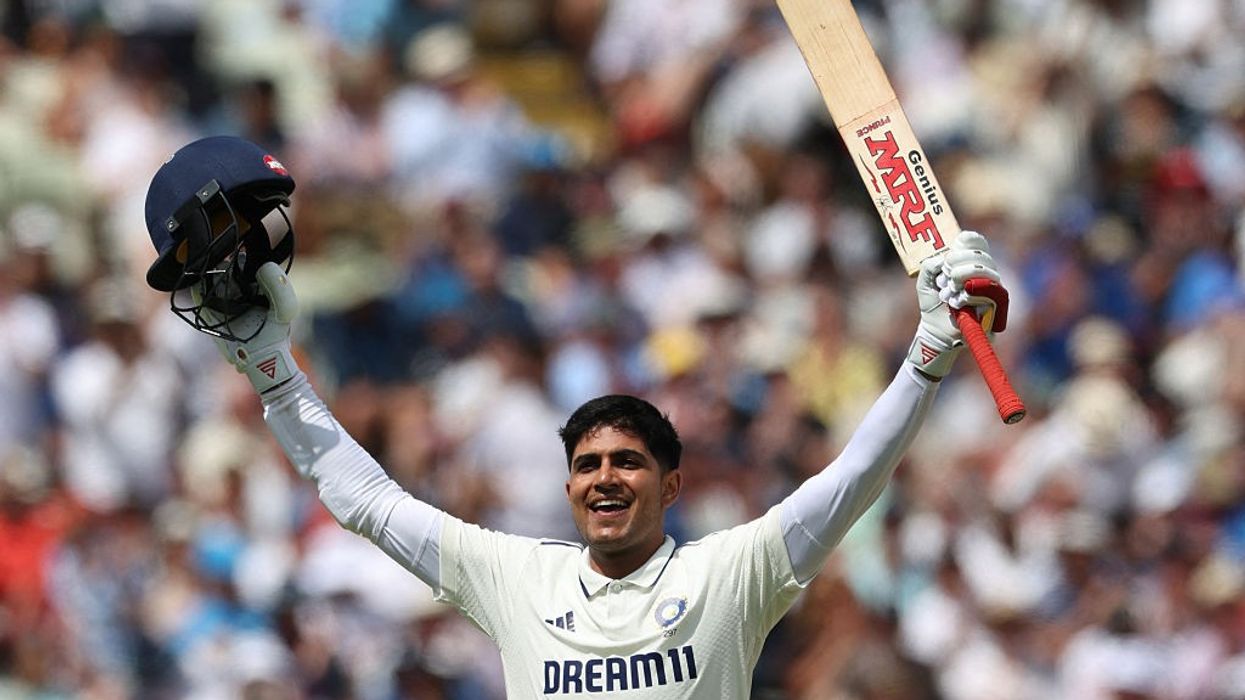MPs and immigration experts have criticised ministers for “deliberately targeting” British Asian families in their quest to get immigration figures down.
Home secretary, James Cleverly, announced last week (13) that from April 2024, the minimum salary threshold for UK nationals and permanent residents applying to bring family members to join them in Britain would rise from £18,600 to £38,7000.
There were 82,395 family-related visas granted in the year ending September 2023, with the most common origin countries being Pakistan, India and the US.
Eight out of 10 visas were for partners and the rest were for children.
“It feels like it is deliberately targeting families like those who live in my constituency, from an Indian or Pakistani background,” Gareth Thomas MP for Harrow West told Eastern Eye.
“They’re now being told it would seem that they can't fall in love with someone from another country if they don't earn almost £40,000 a year.
“It's an extraordinary move by the government.
“It will penalise people who make a real positive difference to our country and to my community.”

Thomas revealed he was surprised the policy wasn’t looked at by the Migration Advisory Committee (MAC) which he said would have come up with a more “considered and sensible” solution.
“If you're introducing a policy - which is likely to have a significant impact on people's lives - the least you can do is get it tested properly and demonstrate that independent thinkers have helped you and warned you about the consequences of what you're up to,” said Thomas.
“The Migration Advisory Committee would have been the obvious place for this sort of policy idea to have been tested before the government announced it.
“In truth, it doesn't look like they bothered.
“They just devised this policy on a whim in the Home Office to try and look tough on immigration, and actually it's going to do huge damage.”
Ripping families apart
Shahanara Begum is a mother of two from Tower Hamlets.
She has been doing two jobs for almost year with the aim of bringing her husband from south Asia to the UK and taking some of the financial burden off her.
“My husband is a lecturer and accountant in Bangladesh,” Begum told Eastern Eye.
“But that doesn’t matter to the UK government.
“The fact that he could come and help me and have a positive impact on the country, they don’t care.
“Here, I am struggling working in a sari shop until 3 pm, then pick my kids up from school and drop off them to my sister’s house and then I go and work as a care worker from 4 pm-7 pm.
“By the time I come home both my kids are sleeping.
“My kids are not seeing their mother because I am trying to earn enough to apply for my husband.
“I am just about earning above £21,000-a-year.
“How in God’s name am I going to earn £40,000 a year?
“The government are ripping my family apart.
“Not only are my children not seeing their father, they are barely seeing their mother.
“I thought this would only be for short-term, but it will now be for I don’t know how long.”
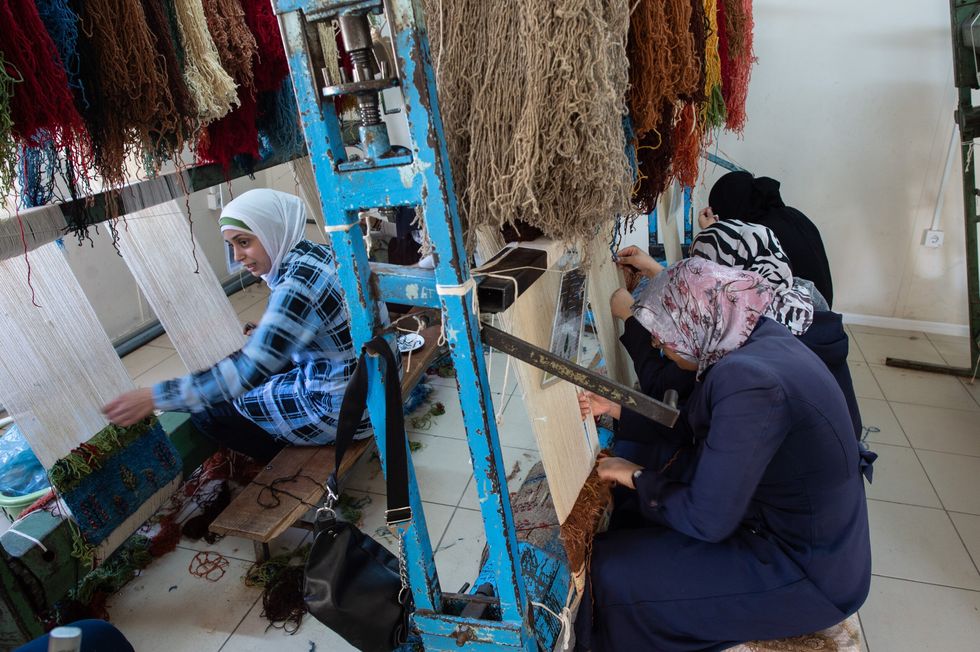
The latest move by the government could mean a stark choice for south Asians.
“What do I do? Do I move to Bangladesh?” Begum asked.
“I am never going to earn £40,000 a year.
“The sad thing is, if my husband came here, he could potentially earn that much on his own.
“But now me and my kids can barely pay the rent and put food on our plates.”
Racist and sexist policies
Research by the Runnymede Trust showed around 18 per cent of Bangladeshi workers, 11 per cent of Pakistani and Chinese workers, and five per cent of black African and Indian workers are paid below the national minimum wage, compared to three per cent of white workers.
And data from the Office for National Statistics (ONS) showed that workers of Pakistani or Bangladeshi heritage have the lowest median hourly pay of any ethnic group – the latter earning 20.1 per cent less than white British workers.
A third of Bangladeshi men work in catering, restaurants and related businesses while one in seven Pakistani men work in taxi, chauffeuring and related businesses.
Mary Atkinson, campaigns and networks manager at The Joint Council of Welfare of Migrants (JCWI) told Eastern Eye the new policy was “purposefully discriminatory” against British Asians.
“(The government) did an impact assessment back in 2012 when they were thinking about bringing in the policy.
“They looked at the average earnings of different ethnic groups.
“The average white man earned comfortably above that threshold, but men from other backgrounds, specifically Bangladeshi and Pakistani-origin men and women of all ethnicities didn’t earn above the threshold.
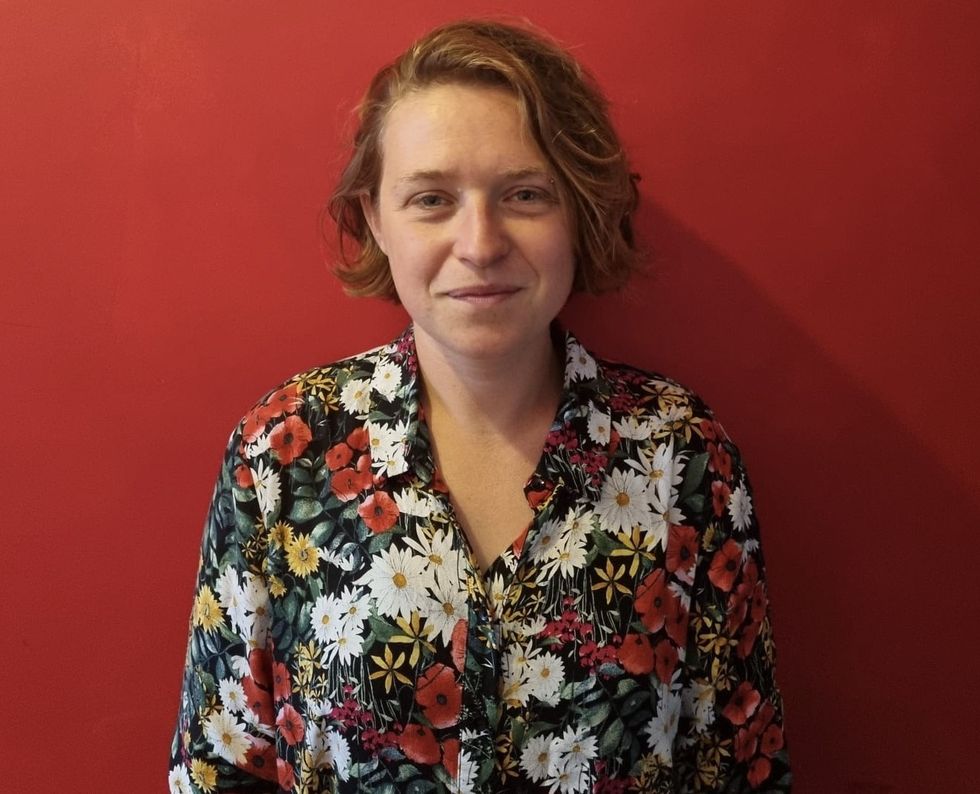
“In their assessment, they (the UK government) said they realised this would cause a discriminatory impact on these communities, but it was ‘proportionate’ in pursuit of the legitimate aim of migration control.
“Under the equality act you are allowed to cause discrimination if it's a legitimate aim you're pursuing.
“It's written into the design of the policy that it is explicitly racist and sexist.”
Major panic
Findings from the Joseph Rowntree Foundation showed that poverty rates for Bangladeshi (53 per cent) and Pakistani (48 per cent) communities in the UK are higher than for other ethnic groups.
In comparison, the rate for the white group is 19 per cent.
Abu Bashir, an immigration consultant in Bradford, said he received several calls from people in a similar situation to Begum.
“There's a major panic, particularly from poorer communities, such as Bangladesh or Pakistan as their income level is well below the national average,” Bashir told Eastern Eye.
“I would say the average income would be around £18,000 - £20,000-a-year.
“Most of them are not qualified, therefore, they're not likely to find a highly-paid job, such as £30,000 and above.
“That means they will never be able to bring their spouse or children to the UK. If the changes go ahead, it will literally stop family migration.”
Bashir said anecdotally he saw the number of UK nationals getting married to spouses in south Asia drop over the years.
But it still remains common practice, especially with arranged marriages.
“It is happening but on a smaller scale, because some people are not able to arrange a marriage in the UK and therefore, they're having to look for a spouse abroad.
“But the fact is, is whether it's one or 100, it's about family unity, it’s about the psychological impact on individuals not being able to live with their children or their wives, and that is really cruel.
“This kind of policy, in the modern age, cannot possibly exist.”
Net migration
ONS figures last month showed annual net migration to the UK hit a record of 745,000 in 2022 and has stayed at high levels since, with many migrants now coming from India, Nigeria and China - instead of the EU, previously.
Cleverly said the new measures he announced earlier this month could cut the number of new migrants to the UK by 300,000.
But changes to the family visa would see that number cut by just 10,000, according to reports of government briefings.
“The number of people who will be affected might not be huge, but it certainly could have quite a dramatic impact on those people impacted by it,” Ben Brindle, a researcher at the Migration Observatory, University of Oxford, told Eastern Eye.
“It's going from 75 per cent of the population earning above the old thresholds to around 30 per cent earning above the new one.”

Brindle said that the new law could potentially impact those whose spouses are already in the UK on a temporary visa.
But their partners will now fall below the minimum income threshold when reapplying for a visa or permanent residency.
Prime Minister Rishi Sunak said on Friday (15) the government was looking at "transitional arrangements" for British citizens with foreign spouses who find themselves in this predicament.
The government initially said the new rule would also cover people already in the UK who were reapplying for visas.
Immigration minister, Tom Pursglove, said earlier this week the government was not intending to apply these measures “retrospectively”.
But he declined to offer any more clarity, saying more details would be announced "as soon as we are able".
Brindle said, “The big question is what's going to happen in terms of those that are renewing their family visas.
“There was some confusion initially, but it sounds like it could be applied.
“There's going to be some sort of ‘transitional changes’, but what that's going to mean when the details are released is quite a question.
“If somebody is earning let's say just over the threshold - £19,000, if there's a transition where they have to get from that level to a new one of £38,700, it's not going to be possible in a lot of cases. If only it were that easy to increase our income.”
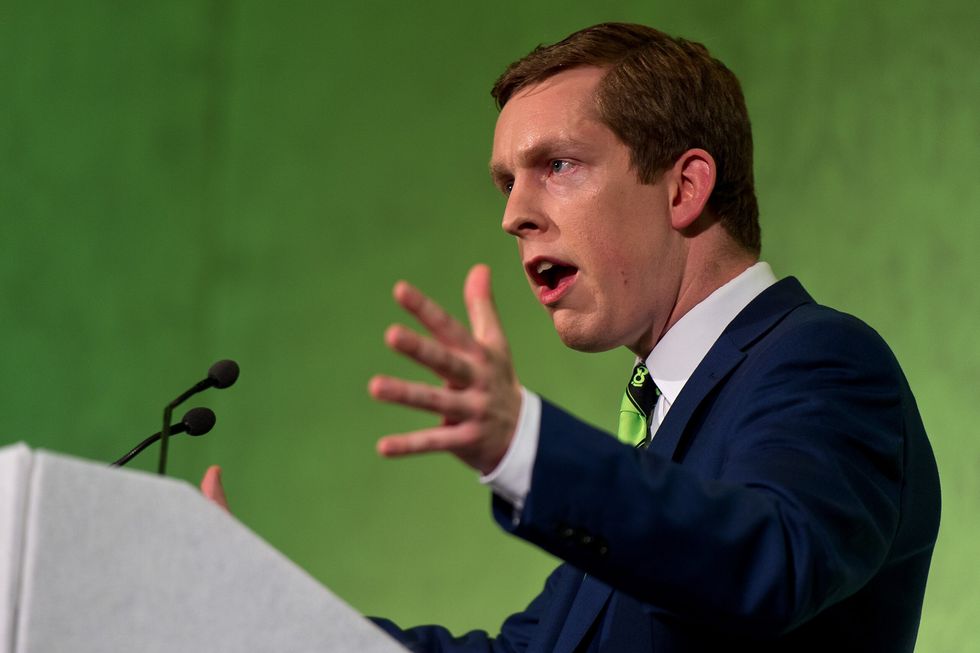
Visa rush
Labour MP for Bradford West, Naz Shah, told Eastern Eye the new spousal visa change will lead to people “rushing into marriages prior to the deadline and many worrying whether they will ever be able to live together with their partners in the UK”.
Her fellow Labour MP, Tan Dhesi from Slough, told Eastern Eye the increase in salary threshold for family visas was an “admission of failure” by the government.
“I’m shocked the Tories have more than doubled the income threshold, which will negatively impact many of my Slough constituents, as they won’t even be able to apply for their spouse to join them. It seems to be the price for love under this callous government,” said Dhesi.
“The significant rise in work visas reflects long-term failures in skills, pay and conditions - that is the responsibility of this Conservative government.
“Introducing new immigration policies without any of the economic policies to match has left us with no plan to address our pressing skills and labour shortages.
“Immigration is important for Britain and has made a huge positive contribution to our society, but the system needs to be fair, controlled and well managed.
“Under the Conservatives, the system has broken and simply not working.”
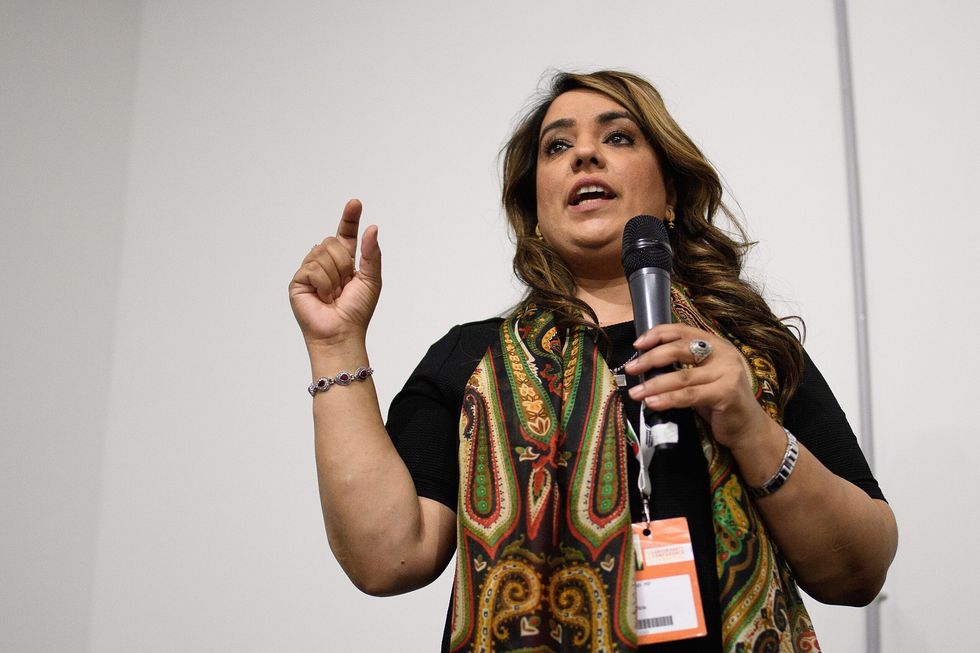
Atkinson said the closer it gets to a general election next year the more migrants will be under the spotlight.
“We've lived in a political environment for decades now where migrants are used as scapegoats,” she said.
“It's easy to point the finger at newcomers and say they're a problem. But the cost-of-living crisis and NHS waiting times aren't caused by migration.
“In fact, migrants are massively over represented in the NHS workforce, for example.
“What is causing these problems is mismanagement, divisive policies which affect all of us - migrants and non-migrants.”
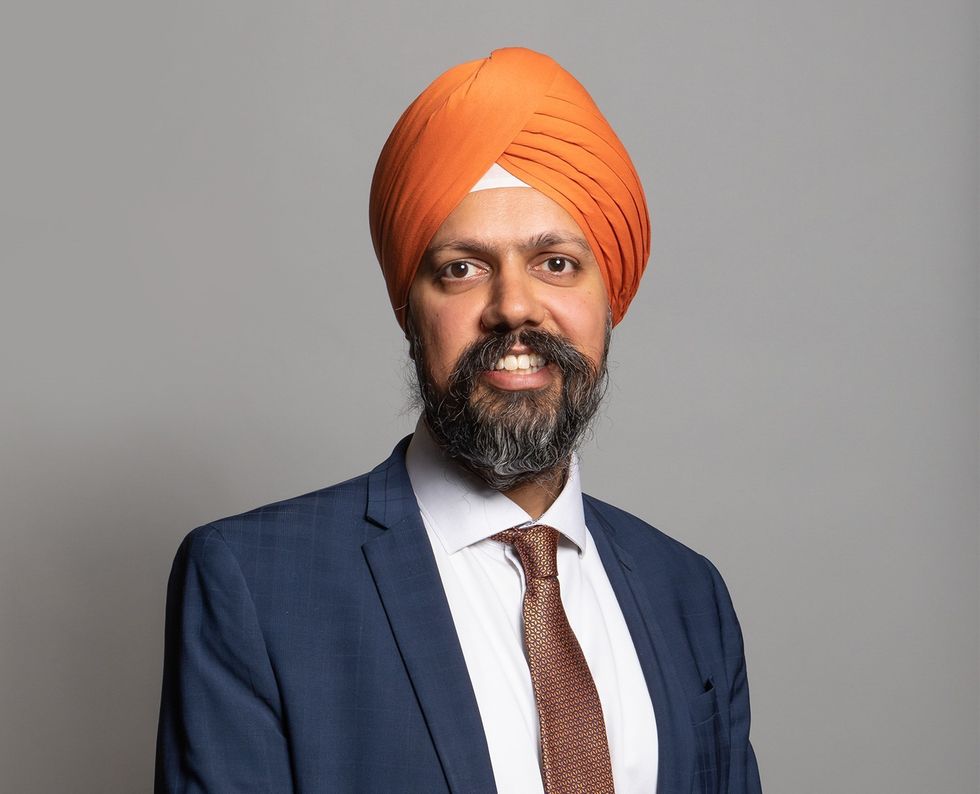
A Home Office spokesperson said, “We have a long-standing principle that anyone bringing dependants to live in the UK must be able to financially support them.
“The minimum income requirement ensures that families are self-sufficient instead of relying on public funds, with the ability to integrate if they are to play a full part in British life.”
“Concerned and distressed”
Among other recent measures announced by the government, the minimum salary threshold for foreign skilled workers would also rise to £38,700 from its current level of £26,200, though health and social workers would be exempt.
But foreign health workers would no longer be allowed to bring in family members on their visas, while a surcharge migrants have to pay to use the health service has risen by 66 per cent.
The British Association of Physicians of Indian Origin (BAPIO) – the UK’s largest representative body for nearly 80,000 doctors and 55,000 nurses of Indian origin – wrote to the home secretary last Wednesday (13) demanding clarity on how the new clampdown on overseas care workers would operate.
“It was very concerning and distressing to our members to read about the plans to prevent overseas care workers from bringing their dependants to the UK,” said BAPIO.
“Stopping their spouses and children from accompanying them to the UK will have a significant detrimental impact on their mental and physical well-being, resulting in a lower quality of care for patients and a reluctance for these skilled workers to either continue working or start new positions in the UK.”














